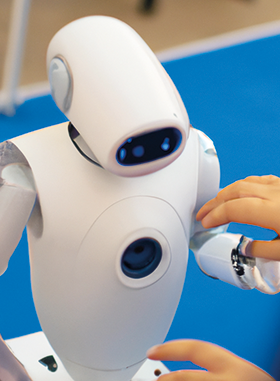

Artificial Intelligence (AI) has made remarkable strides in numerous industries, and education is no exception.
The integration of AI into the educational sector has the potential to revolutionise the way we learn and teach. This essay explores the role of AI in education and how it is transforming the education system.
Firstly, AI can provide personalised learning experiences for students. By analysing a student’s learning patterns, AI algorithms can tailor lessons to each individual’s needs, strengths, and weaknesses. This helps to address the issue of one-size-fits-all education, where students are not challenged enough or are left behind due to the pace of the class. With AI-powered personalisation, each student can receive lessons that are specifically designed for their level, resulting in more efficient learning and improved outcomes.
Additionally, AI can be used to provide real-time feedback to students, allowing them to identify and correct their mistakes more quickly. This can be achieved through natural language processing (NLP) and machine learning algorithms that can grade written assignments and provide instant feedback on the quality of the work. This type of AI-powered feedback can also be used to track students’ progress over time, helping teachers to identify areas where students may need additional support.
Another area where AI can play a significant role in education is in the creation of educational content. AI algorithms can generate educational material and assessments, freeing up teachers’ time to focus on more important tasks such as one-on-one interactions with students and lesson planning. AI-generated content can also be made available to students 24/7, allowing them to access it from anywhere and at any time.
Moreover, AI has the potential to improve access to education for students in remote and underserved areas. Through virtual and augmented reality technologies, AI can provide students in these areas with access to high-quality educational content, regardless of the location. This has the potential to bridge the digital divide and provide students in these areas with equal educational opportunities.
In conclusion, AI is transforming the education sector in many ways. From providing personalised learning experiences to generating educational content, AI has the potential to improve education outcomes for students and make education more accessible and efficient. However, it is important to note that AI should not be seen as a replacement for teachers, but rather as a tool to enhance the teaching and learning experience. With the right balance of technology and human interaction, AI has the potential to revolutionise education and provide students with opportunities that were previously not possible.
Disclaimer: The above essay was not written by a human being. A conversational AI was tasked with writing an essay on “The role of AI in education”. What can be read above is the article from the AI-engine verbatim, except for a few spelling changes of words from American English to South African English.
Editor’s thoughts: The above essay is not so much an article on the role of AI in education, but rather a showcase for what is presently possible. Many of these conversational AI-engines exist today. Every time a search is performed in Google or Bing, an AI is working behind the scenes to hopefully produce the best version of information available.
However, the current AI available has a very narrow focus. It is very good at doing one thing. As computers become more powerful, the scope of AI will broaden into something resembling human intelligence. Most reports point to a timeline of around 2040 when machine intelligence will overtake human intelligence.
AI is here to stay. We, as human beings, need to embrace the technology and make use of it instead of viewing it as a future threat. The education landscape is certainly changing, and I firmly believe that AI-based education will be a boost and not a hindrance.

© Technews Publishing (Pty) Ltd | All Rights Reserved